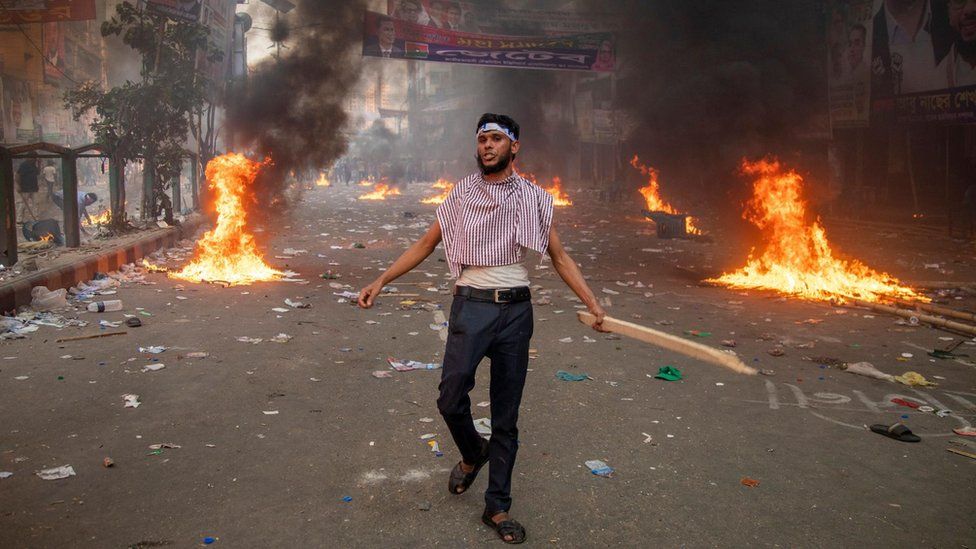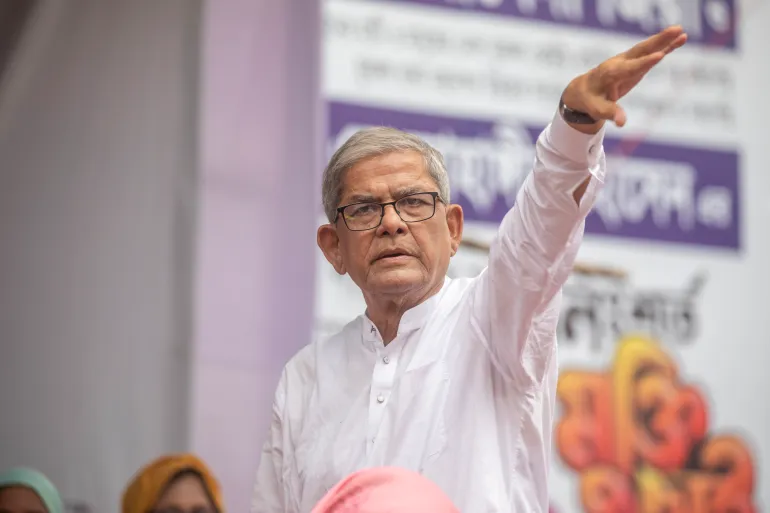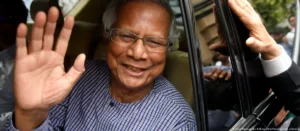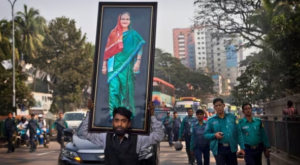Oliver Slow
A senior Bangladesh opposition leader and dozens of members of his party have been arrested after violent anti-government protests in Dhaka.
Mirza Fakhrul Islam Alamgir, secretary-general of the Bangladesh Nationalist Party (BNP), is among those facing charges, an official said.
Tens of thousands of protesters turned out over the weekend, calling for Prime Minister Sheikh Hasina’s resignation.
One police officer was killed, as well as at least one protester.
There are conflicting reports of why Mr Alamgir, 75, was arrested.
Local media report that he was detained for an alleged attack on the home of Bangladesh’s chief justice.
But AFP news agency said he had been charged, along with 164 other BNP members, with murder following the death of the police officer at Saturday’s protest.
Police said the officer had been hacked to death, and accused BNP activists of the killing.
Protesters and police clashed again on Sunday in multiple locations. Dozens were injured.

Mr Alamgir has led the party since chairwoman and former prime minister Khaleda Zia was arrested and jailed for five years on corruption charges.
With elections expected in January, the BNP has been holding protests against Ms Hasina, calling for her to stand down and for a vote to be held under a neutral government.
BNP party spokesman Zahir Uddin Swapan said nearly 3,000 party activists and supporters had been detained in the past week, while Dhaka police said at least 1,480 opposition activists had been arrested and charged with violence since 21 October.
Ms Hasina – the daughter of Bangladesh’s first president – has been in power since 2009, and has been accused of targeting activists and political opponents, which she denies.
Bangladesh’s politics has long been dominated by a feud between Ms Hasina and Ms Zia, who have both served as prime minister.
This article was first published on BBC, on 29 October 2023






